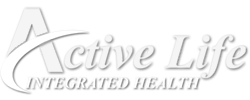Functional Medicine in Reno NV

Active Life Integrated Health is now offering medical management of most common health conditions for non-insured patients using functional medicine in Reno NV. Click an option below to learn more.
1. Diabetes
Type 2 Diabetes (Diabetes Mellitus) is the most common type of diabetes. It is a common chronic condition, a result of poor pancreas function, producing little or no insulin, leading to high blood sugar. In other words, the body is unable to move sugar from the bloodstream into muscle for immediate energy, or into fat cells to use as stored energy for later use. Uncontrolled diabetes can lead to heart attack, stroke, kidney failure, blindness, extreme fatigue, erectile dysfunction, hormone dysregulation, nerve damage in the extremities leading to pains, loss of sensation in the feet, and ultimately amputations. Patients with uncontrolled blood sugar are also prone to frequent urinary infections, pneumonia and viral infections, as uncontrolled diabetics are likely to have poor immune function, unable to resist and successfully combat the invading pathogens. It is common to have gastrointestinal (gastritis, acid reflux, indigestion, malabsorption of nutrients), mood problems (anxiety, depression). Continuous high blood sugar creates an acidic environment in the bloodstream which can potentially lead to a variety of cancers.
The cause of Type 2 Diabetes is believed to be a combination of environmental and / or genetic factors. It is easily diagnosed by obtaining a simple lab test, screening for fasting blood sugar, as well as Hemoglobin A1C (HbA1C) measuring average blood sugar levels over the last 3 months.
Common signs and symptoms of Diabetes:
- Increased urination, particularly at night (nocturnal)
- Increased thirst and hunger
- Unexpected weight loss
- Extreme fatigue and sleepiness, despite adequate sleep
- Blurry vision
- Numbness, tingling and / or pain in hands and feet
- Extremely dry skin
- Poorly healing sores and wounds
- Frequent infections (bladder infections, yeast infections, upper respiratory infections, common colds, allergies)
- Uncontrolled acid reflux, indigestion, abdominal bloating
- Erectile dysfunction, decreased libido (due to nerve and blood vessel damage)
- Depression, exacerbation of other mood disorders
Once diagnosed it can be successfully managed with a combination of lifestyle modifications (diet and exercise) and medication prescription management.
Due to the increased risk of cardiovascular disease, it is also important to maintain a healthy weight, blood pressure and cholesterol.
2. Hypertension
Persistently high blood pressure, high force of blood flow against arterial walls is called hypertension. Hypertension can be mild, moderate, severe or paroxysmal (intermittent) such as “white coat syndrome” in times of stress. This is a genetic and / or acquired chronic condition. Persistently elevated blood pressure can lead to heart attack, stroke, aneurysm, heart failure, vision loss, kidney failure, erectile dysfunction among others. It can be symptomatic or asymptomatic (no symptoms), and thus is called silent killer.
Some of the warning signs and symptoms:
- Severe headaches
- Chest pains
- Dizziness and nausea
- Shortness of breath
- Blurry vision or other vision problems
- Anxiety and confusion
- Chronic fatigue
- Tinnitus, ringing or buzzing in the ears
- Abnormal heart rhythm
- Nosebleeds
Contributing factors:
- Older age
- Genetics
- Weight
- Physical activity
- High salt and sugar diets
- Smoking
Treated with prescriptions, medications, and lifestyle changes.
3. High Cholesterol (Hyperlipidemia)
Excess level of Triglycerides and / or Low density lipoproteins can pose serious health problems, which can ultimately lead to stroke, heart attack, atherosclerosis (hardening of the arteries), peripheral artery disease (poor blood supply in the lower extremities), vision issues, gallbladder problems, fatty liver. There are good and bad types of cholesterol. A healthy balance between cholesterol types can ensure proper functions in the body.
Main causes include:
- Genetics
- Smoking
- Alcohol consumption
- Poor diet
- Uncontrolled stress
- Sedentary lifestyle
Once diagnosed can be easily managed with prescription medications and lifestyle changes (diet modification, exercise, smoking cessation, stress control, limit alcohol).
4. Medical Weight Management
Excess weight can contribute to medical problems including high blood pressure, high cholesterol, diabetes, stroke, heart attack, gallbladder issues, poor self-image, depression, osteoarthritis and osteoporosis, sleep apnea and breathing problems, muscle and joint aches. Excess weight can also contribute to many types of cancer. Causes of weight gain are many, can be lifelong issues, occur over time or can be rapid. Some of the most common causes of weight gain are hormonal imbalance including thyroid, stress and sex hormones, poor mental health including anxiety and depression, high caloric intake and minimal exercise.
This can be treated with an individual approach incorporating a thorough medical assessment to identify contributing factors and causes. This can be managed with multidisciplinary approach, medications (oral or injections), vitamin supplementation (injections, orals, sublinguals), nutritional support (dietary consultations), exercise to tolerance and preference (individualized approach), mental stability (body and mind connection approach).
Disclaimer: This information does not replace a medical consultation.
OFFICE HOURS
Monday
8:00am - 5:00pm
Tuesday
By Appointment
Wednesday
8:00am - 5:00pm
Thursday
By Appointment
Friday
8:00am - 5:00pm
Saturday & Sunday
Closed
Active Life Integrated Health
971 W Moana Ln
Reno, NV 89509
P: (775) 842-0065
F: (775) 409-3407



